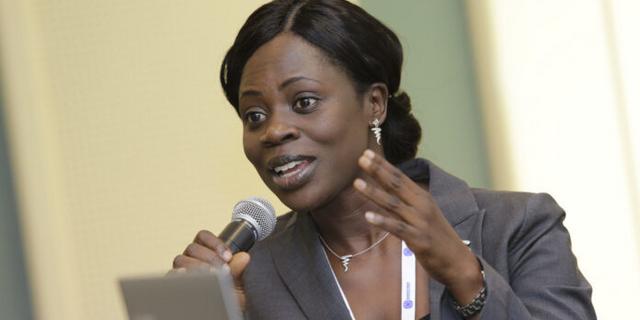Abena Amoah
A leading Investment banker and Deputy Managing Director of the Ghana Stock Exchange (GSE), Abena Amoah, has endorsed the approach being used for the establishment of Development Bank Ghana (DBG).
Ms Amoah, speaking as part of a development finance series organised by Citi TV and Citi FM in collaboration with the research and consultancy centre of the University of Professional Studies, Accra (UPSA), noted that the Development Bank Ghana was set up to attract very cheap capital to boost Ghana’s economic growth through agriculture and manufacturing.
Ms Amoah said, “Development Bank is structured to raise very cheap funds which should allow businesses to borrow into the target sectors i.e. manufacturing,
housing, agriculture etc.”
Despite being described as the bedrock of Ghana’s economic development, the agriculture and manufacturing sectors just receive 4 and 8 percent respectively of investment. She said the situation resulted from the lack of capital due to the short term nature of investment funding available.
In a bid to find a solution to the foregoing problem, Government, in partnership with the European Investment Bank (EIB), and other international development institutions, have committed to the establishment of a new development finance institution in Ghana to provide capital for Ghana’s industrialisation agenda.
According to Dr Emmanuel Debrah, a finance lecturer at UPSA, all development banks have collapsed due to poor corporate governance.
“When I heard of the Development Bank, what came to mind was all the development banks Nkrumah built. All of them are no more. The question is, ‘What have we learnt from these to guide the sustainability of the yet-to-be operational Development Bank, Ghana? Research has shown that all development banks in the past collapsed due to poor corporate governance,” Dr. Debrah noted.
Director of the Financial Sector Division of the Ministry of Finance, Sampson Akligoh, speaking on the same platform, gave the assurance that Government was plugging all loopholes to ensure that the Development Bank Ghana stood the test of time.
“Typically, the way the bank was set up under the Companies Act gives us some level of immunity so in that case, we don’t have direct political involvement. Secondly, we have done all that we can to make sure that recruitment is done through an independent process,” Mr Akligoh said, adding that the diversity of the partners working with the government to establish the bank was testament to its sustainability.
Speaking on why Ghanaian businesses prefered debts to equity in their quest for funding, Awura Abena Agyeman, CEO of Wear Ghana, noted that young businesses were not just interested in money but also in ‘smart’ capital.


